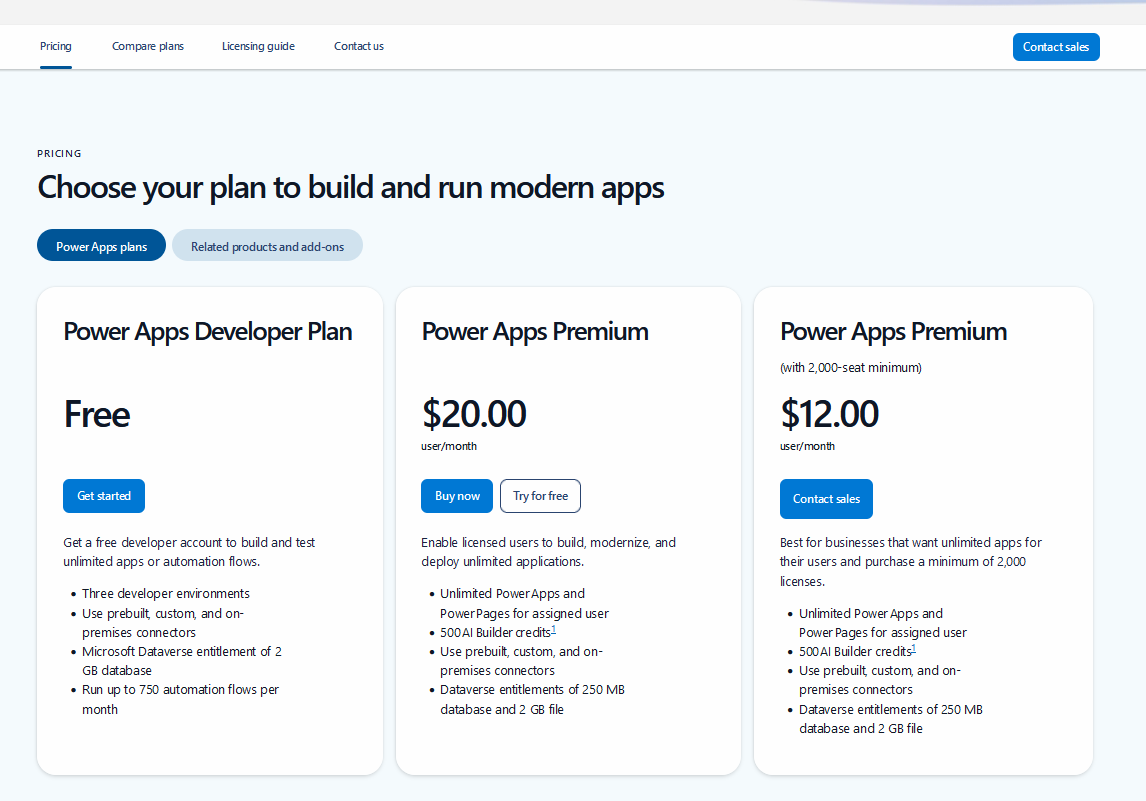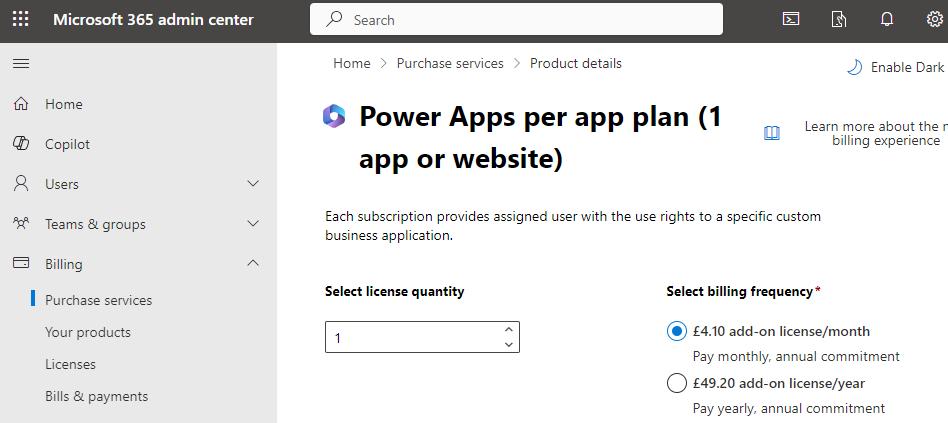Blog
Dataverse - The cheapest way to license a Power Apps Canvas App 2025
January 11. 2025
Determining licensing costs for Power Apps is confusing.
When trying to find the cheapest way to license a canvas app that uses Dataverse as a data source, users often find forum posts and articles that mention premium, per-app, and per-user licenses.
The really confusing thing is that the licensing page on the Microsoft website shows only the free Developer and Premium plans (as illustrated below). This gives the impression that these are the only available licensing types, which isn't the case.

What's the cheapest Dataverse license for Canvas Apps?
As of January 2025, the cheapest way to license a canvas app is to purchase per-app licenses for each user.
This license type is detailed in the PDF licensing guide, which is the most comprehensive resource for licensing questions. At present, the cost of a per-app license is $5 per user per month.
This license type is detailed in the PDF licensing guide, which is the most comprehensive resource for licensing questions. At present, the cost of a per-app license is $5 per user per month.
The link to the PDF guide is here:
Here's a screenshot from the guide that describes the current plans.

Where do I find the current price of a Power Apps per app/per user license?
Because the main licensing page doesn't show the cost of all available plans, how do we determine the price of a per app/per user license and make a purchase?
The answer is to log into the Microsoft
365 admin center. From here, we can go to the Billing > Purchase services page and search for the
option to purchase a "Power Apps per app plan".
The screenshot below shows the current price of £4.10 per
month (since I'm based in the UK).

Final Point - Microsoft 365 licenses do not include Dataverse
A final important point of clarification is that a Microsoft 365 license
(eg, E3 / E5 etc) is insufficient for licensing a canvas app for use with Dataverse.
It's possible to develop canvas apps in the
designer and to view Dataverse tables with a Microsoft 365 license. However, this license is insufficient to run the published app.
Because of this behaviour, some app builders mistakenly believe
they have full runtime access to Dataverse, which adds to the confusion. It's important to note that this is not the case.
- Categories:
- licensing
Related posts
- SQL Server - Grandfathered licensing model to end on October 1, 2024
- How to fix licensing error when registering for the Power Apps developer plan
- Error - How to fix the "This app isn't opening correctly" / "InsufficientActivePlanForApp" message
- Licensing - Microsoft 365 licensing price set to increase in March 2022
- Microsoft announces cheaper Power Apps licensing from October 2021
- Why is Microsoft 365 licensing so confusing?
- Licensing - What license do I have?
